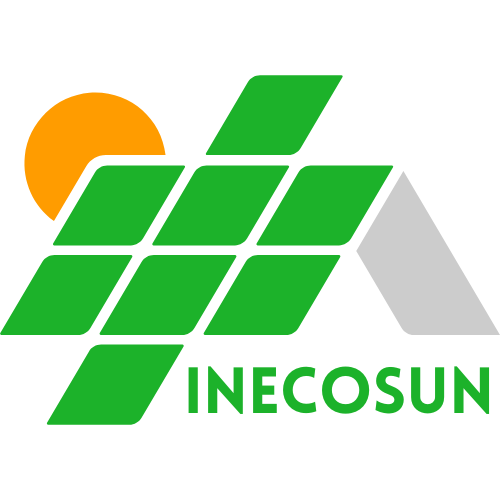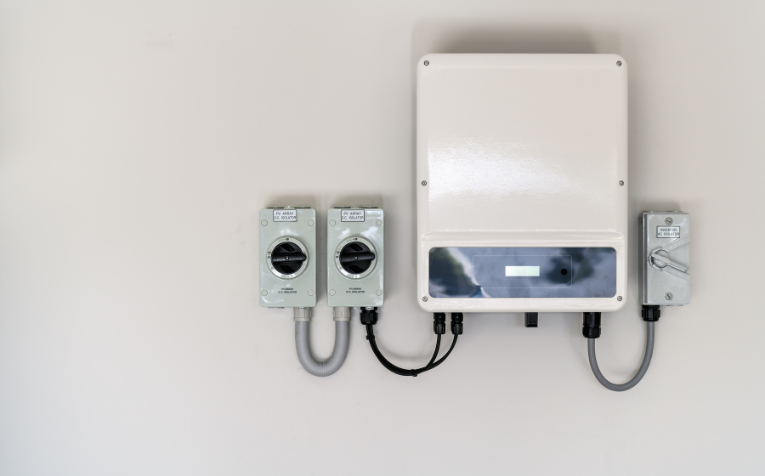A Guide to Choosing an Inverter for Solar Panel Installation
Solar panel installation is an excellent way to harness clean and renewable energy from the sun. However, to effectively convert solar energy into usable electricity, you need a reliable and efficient inverter. An inverter plays a crucial role in the solar power system by converting the direct current (DC) produced by the solar panels into alternating current (AC) that can be used to power your home or business. In this guide, we will walk you through the essential factors to consider when choosing an inverter for your solar panel installation. Join us as we unravel the world of inverters and empower you to make an informed decision.
Understanding the Function of an Inverter
Before diving into the selection process, it’s important to understand the role of an inverter in a solar power system. Solar panels generate DC electricity, which is then fed into the inverter. The inverter converts this DC electricity into AC electricity that matches the frequency and voltage requirements of your electrical appliances and the power grid. Inverters ensure that the electricity generated by your solar panels is compatible with your home or business, allowing you to utilize solar energy to its fullest potential.
Types of Inverters
There are several types of inverters available for solar panel installations, and selecting the right one depends on your specific needs and preferences. Here are some of the most common types:
- String Inverters: Also known as central inverters, string inverters are the most traditional type and are widely used. They are installed at a centralized location and connect multiple strings of solar panels together. String inverters are known for their cost-effectiveness and reliability.
- Microinverters: Microinverters are installed on each individual solar panel within your system. Unlike string inverters, microinverters work independently, allowing each panel to operate at its optimal efficiency. Microinverters are ideal for installations with partial shading or complex roofs, as they mitigate the impact of shading on the entire system and offer greater flexibility.
- Power Optimizers: Power optimizers, also known as DC optimizers, are installed on each solar panel similar to microinverters. However, unlike microinverters, power optimizers do not convert DC to AC directly. Instead, they optimize the power output of each panel before transmitting the DC electricity to a central inverter. This setup provides similar benefits to microinverters, such as shade tolerance and panel-level monitoring.
- Hybrid Inverters: Hybrid inverters are designed for systems that combine solar power with energy storage solutions, such as batteries. They allow you to store excess solar energy and use it during periods of low sunlight or high demand. Hybrid inverters are suitable for off-grid applications or areas with frequent power outages.
Key Considerations for Inverter Selection
Now that you have an understanding of the different types of inverters, let’s explore the key factors to consider when choosing the right inverter for your solar panel installation:
- System Size: The size of your solar panel system will influence the inverter capacity you need. Ensure that the inverter you choose is compatible with the maximum power output of your solar panels. Oversizing or undersizing the inverter can impact system performance and efficiency.
- Efficiency: Inverter efficiency is an important consideration as it determines how much DC power is converted into AC power. Higher efficiency inverters minimize energy losses, resulting in greater overall system performance.
- Warranty: Inverters typically come with warranties ranging from 5 to 25 years. Consider the length and terms of the warranty offered by the manufacturer. A longer warranty period provides peace of mind and ensures that you are protected against any potential issues.
- Monitoring and Data Reporting: Look for inverters that offer comprehensive monitoring capabilities. Some inverters provide real-time data on energy production, allowing you to monitor and analyze your system’s performance. This data can be valuable in identifying any issues or optimizing the efficiency of your solar panels.
- Compatibility with Battery Storage: If you plan to incorporate energy storage solutions, ensure that the inverter is compatible with the battery system you choose. Compatibility is crucial to ensure seamless integration and effective utilization of stored energy.
- Durability and Environmental Compatibility: Consider the environmental conditions in which the inverter will be installed. Look for inverters that are designed to withstand extreme temperatures, humidity, and other outdoor elements. Inverters with higher Ingress Protection (IP) ratings provide greater protection against dust and water.
- Safety Certifications and Standards: Verify that the inverter complies with relevant safety certifications and standards. This ensures that the equipment has undergone rigorous testing and meets industry requirements for electrical safety.
Seeking Professional Guidance
While understanding the key considerations is essential, it is also advisable to seek professional guidance when selecting an inverter for your solar panel installation. Solar energy companies, like Inecosun, have the expertise and experience to assess your specific needs and recommend the most suitable inverter for your system. They can help you navigate through the technical specifications, warranty details, and product offerings to ensure that you make an informed decision.
At Inecosun, we offer a wide range of high-quality and reliable inverters that have been tested and proven in various solar panel installations. Our expert team can guide you in choosing the right inverter that maximizes the performance and efficiency of your solar power system.
Making the Right Choice
Choosing the right inverter is crucial for the optimal performance and efficiency of your solar panel installation. Take the time to understand the different types of inverters, evaluate the key considerations, and seek expert advice when needed. With the right inverter in place, you can maximize the benefits of solar energy, reduce your reliance on the grid, and contribute to a more sustainable future.
Invest in a high-quality inverter from Inecosun, and let us empower you to make the most of your solar panel installation. Contact us today and embark on your journey towards a cleaner, greener, and more sustainable energy solution.
At Inecosun, we are committed to providing top-notch solar panel installations and offering the best inverter solutions. Let us guide you in choosing the ideal inverter for your needs and help you unlock the full potential of solar energy.

